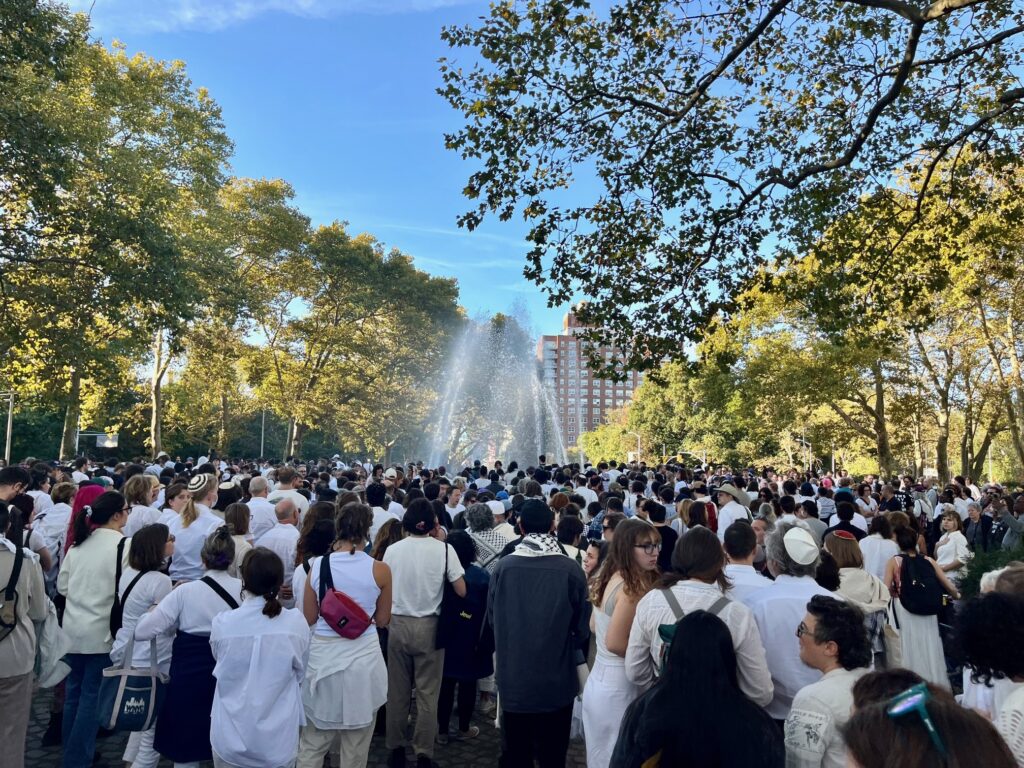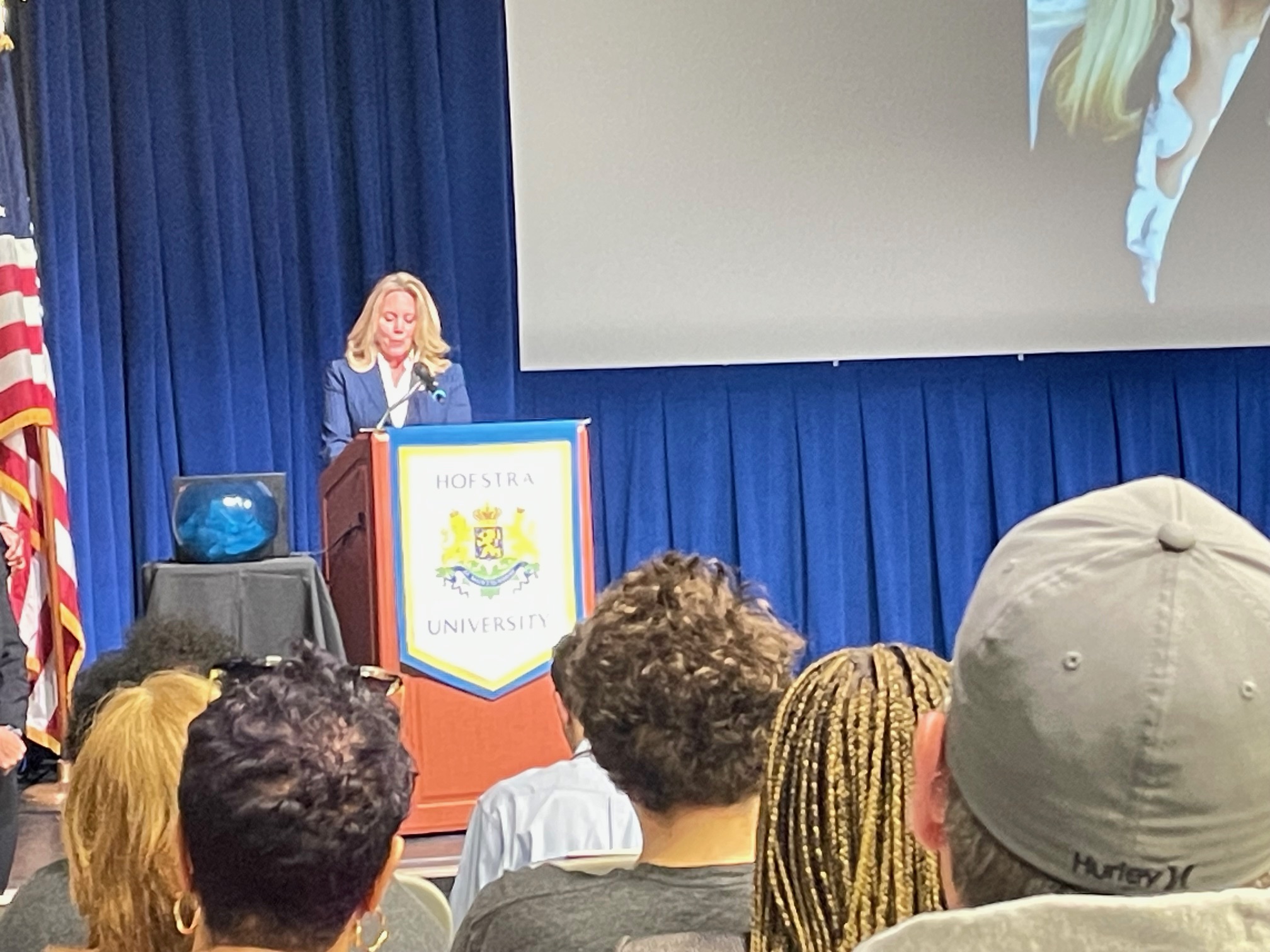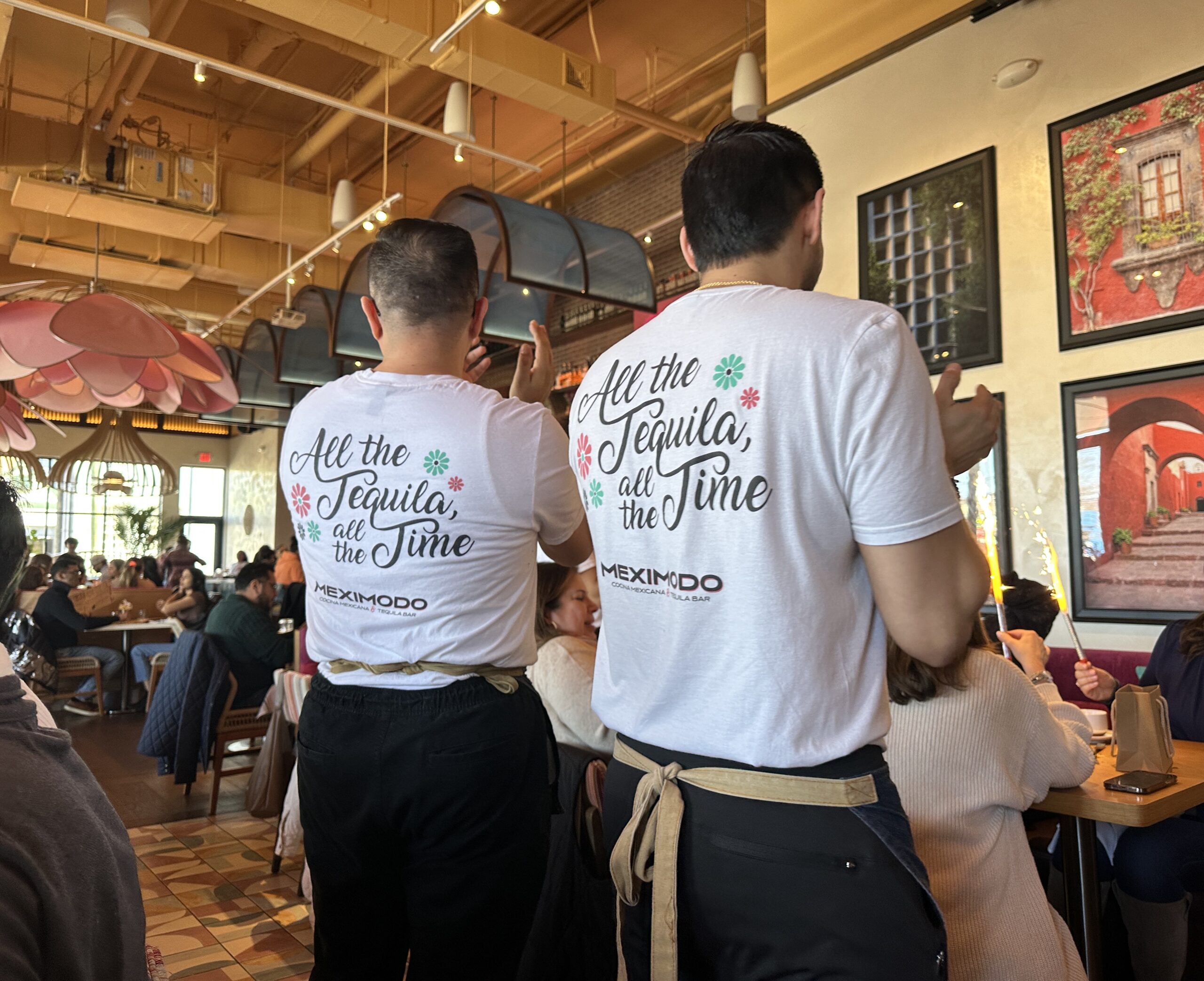(NEW YORK) —Thousands of people, predominantly Jewish, came together at Grand Army Plaza on Oct. 12 for a mass public ritual to grieve the lives lost in Palestine and Israel over the last year and to call for a ceasefire.
As the war in Gaza stretches into its second year, the collaborative of progressive Jewish groups marked the one-year anniversary by grieving the loss of life of more than 41,000 Palestinians and more than 1,200 Israelis according to ABC News, through a public version of a Jewish Yizkor service. Yizkor is traditionally one of the final services in the observance of Yom Kippur, the holiest day of the year in Judaism focused on atonement and self-reflection.
The event was organized by Rabbis for Ceasefire, Congregation Kolot Chayeinu/Voices of Our Lives, Jewish Voice for Peace, IfNotNow, and Jews for Racial & Economic Justice.
Attendees were asked to wear white, which is custom on Yom Kippur. The event was multi-generational with a notable number of older adults present. Next to the stage, two large signs in Hebrew and English read “Not Another Bomb” and “All Human Life is Sacred and Precious,” and a middle sign that read “Refuse, Remember, Recommit.”
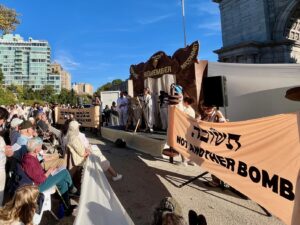
Religious leaders and event organizers on stage [Credit: Erica Petropoulos]
The event continued with a lineup of speakers, most of them rabbis and/or activists, with songs and prayers in between.
There was a call and response led by three rabbis, instructing attendees to chant, “We remember,” “We refuse,” and “We recommit” in response to the rabbis’ statements. Rabbi Abby Stein urged the crowd, “Let this reckoning change our actions for the sake of repair.”
Rae Abileah, a Jewish faith leader and social change strategist, led a fabric-tearing ritual known as Kriah, which is a Jewish custom to express grief at the loss of a loved one. Attendees passed a long strip of fabric through the crowd and tore pieces of it off.
“Grief tears us from the fabric of life, we rip fabric to show we too are torn,” Abileah said.“Today we also make this tear to symbolize the rupture that is happening in Judaism itself, as our faith is weaponized to justify mass killing and so many in our communities are going along with this. Our families are torn apart, our congregation, our culture, we are torn ragged and raw.”
Attendees placed stones around the foundation at Grand Army Plaza, which connects to the Jewish custom of placing a stone on the graves of ancestors.
“The reason I’m here, as a Jew, I feel like we have caused so much pain for the Palestinians over the last 76 years, and I feel like it’s my duty, my responsibility, my privilege and honor to be here, to fight for the freedom, justice, and the right of return for all Palestinians. The fact that Zionism and Israel conflate genocide with my religion and my identity is something I will not accept. As an individual, a Jew from New York City, I grew up in a Jewish home my whole life—I won’t accept that narrative,” said Ally Fairbanks, an attendee.
“It’s so hard to fight the feeling of despair and powerlessness in a moment when we have seen a genocide being live-streamed for the whole world to see over the last year,” said Beth Miller, political director at Jewish Voice for Peace. “But we don’t have the option of giving in to despair. We should feel that despair, that’s human, but it’s our obligation as Jews in Jewish community and as Americans whose tax dollars are funding this, to continue to come together to act.”
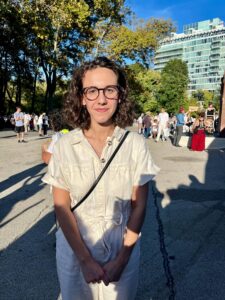
Beth Miller, Political Director at Jewish Voice for Peace [Credit: Erica Petropoulos]
